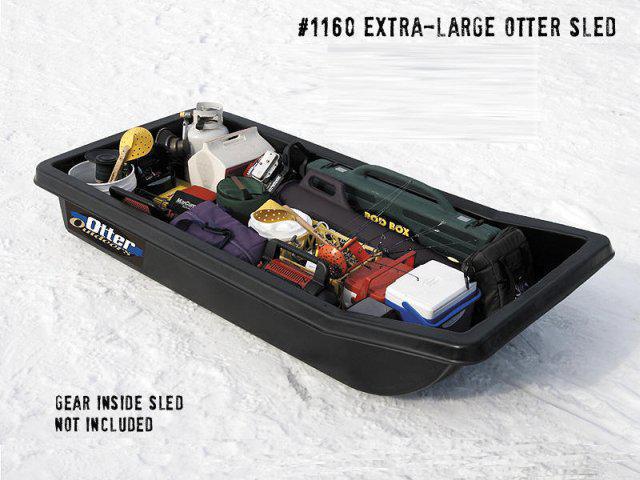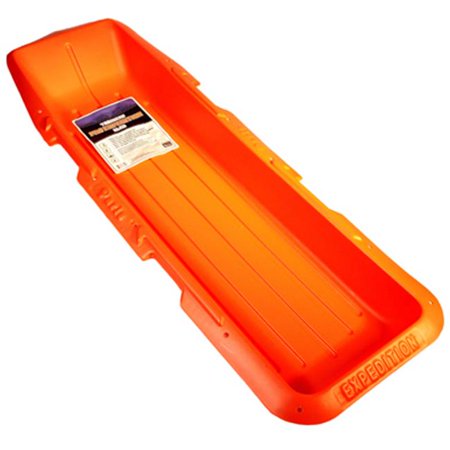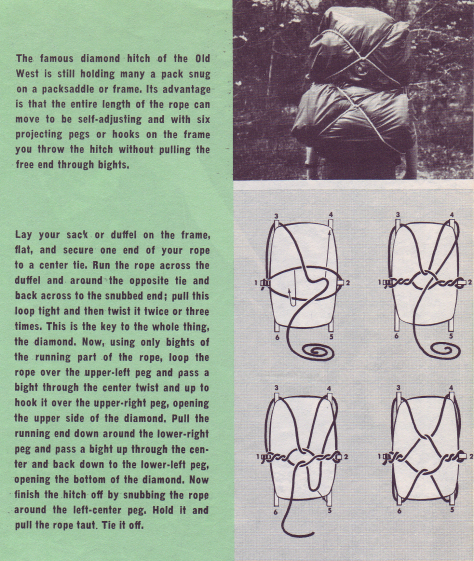Topic
Expedition food
Forum Posting
A Membership is required to post in the forums. Login or become a member to post in the member forums!
Home › Forums › General Forums › Food, Hydration, and Nutrition › Expedition food
- This topic has 27 replies, 13 voices, and was last updated 5 years, 11 months ago by
 Roger Caffin.
Roger Caffin.
-
AuthorPosts
-
Feb 19, 2019 at 2:35 am #3579271
Hi,
I am planning a ski tour and looking for some advice with food. The tour is through fairly remote terrain and I will need to carry 12 days’ worth of food in one section. My base weight is at 7.5kg (16.5lbs) and I don’t think I can get it much lower without sacrificing safety. For food, what sort of daily weight should I be aiming for? As it will be fairly high intensity exercise in a cold environment, I am aiming for ~3500-4000 kcal/day. Using my usual trail diet, I am getting ~830g(~30oz)/day. In total, around 10kg of food for the 12 days. This seems quite high, should I be aiming for less? It doesn’t seem possible to get enough calories if I lower the weight significantly. These calculations have been made using readymade freeze dried meal values. I do not normally use these but I can’t get a higher kCal/100g with homemade recipes.
 Feb 19, 2019 at 5:01 am #3579285
Feb 19, 2019 at 5:01 am #3579285Not knowing your personal body weight I’ll toss out a few observations….
I hate carrying tortillas on long hikes. They’re roughly 80 cal/oz. I might look for something more calorically dense.
Snickers are like 250 cal. for a 1.9 oz. bar, much better.
But no matter how hard to focus on calorically dense foods, you’re going to have a hard time getting much below 2 lbs. or 1 kg per day. It is what it is. And 12 days worth of food can be quite voluminous as well, so if you bring freeze-dried meals I would repackage them and cook ’em freezer bag style.
If there’s any way possible to drop yourself a food cache at roughly the halfway point, it would be worth whatever trouble is involved IMHO.
Feb 19, 2019 at 9:20 am #3579298We find that 750 – 800 g of food per day per person (3-season) will keep us going fine and avoid loss of body fat. But we are pushing the dried food bit and the calorie-dense bit moderately hard. But we eat well.
In the snow I might push that up towards 900 g /day.
I remember one guy claiming 400 g/day for himself. Impossible, I said. Well, turns out he was also burning >400 g per day of body fat! He was not fussed about this as he had been a shade over-weight at the start. That is another way of doing it.
Cheers
Feb 19, 2019 at 2:37 pm #3579316Roger, we follow that system for our trips, which are never more than a week. If we lose a few pounds, that is not a bad thing. That system won’t work for through hikers!
Feb 19, 2019 at 3:12 pm #3579321I’m 6′ and about 155lbs so I don’t have much to spare unfortunately and I don’t gain weight that easily to bulk up before winter. I guess I am on the right track at around 850g. I was thinking about a food cache but I’m not sure if it will be possible. Snickers are always in the pack, I don’t think I’ve ever had enough chocolate on a hike! I will continue hiking after this section but it will not be so cold and resupply points are more frequent, so losing a bit of weight wouldn’t be disastrous.
Feb 19, 2019 at 4:29 pm #3579345Yeah, I usually go with much less than 2pounds (about .9kg) per day. I usually head out with around 425g/day or around a pound/day.
A typical breakfast is about 2oz of oatmeal of assorted flavors. 3 cups of mocha.
I stop a couple times to eat about a half of a energy bar, some cheese, jerky or similar. A light snack to keep me moving past 8 hours.
I usually eat about a 7oz supper with an 2ounces of pemmican, or an ounce of olive oil and an ounce of dried meat, and, a cup of cocoa (sometimes an ounce of “trail fuel”… )All told, around 0.9-1.1 pounds per day, avg. on a 14 day trip. You cannot really metabolize body fat fast enough to supply all of your energy needs, so, while I could go with less (I have tried 0.75pounds per day) I find that I get tired, required more rest stops, and am done about 8 hours into the next day.
The rest of my energy is from fat from my body. In cold weather I sometimes pack a bit more, for example adding some chocolate/peanut bars for more energy output.
Most of your fat reserves are metabolized at a fairly constant 2500C/day. This varies from person to person, with training, with your condition, your age… For example, Eskimo peoples were known to eat 80% fats in their diet and utilize most of it as part of a 4500C diet. Each pound of fat has about 3200C (some say more, but only the lipids are used, not the entire cell, and, it costs energy to get energy from stored fats.) Bomb calorimeters burn everything, for example, without considering the cells still need to live. So, it is possible to burn about 3/4 of a pound (about a 1/3 of a kg) with no ill effects provided you have some food and the vitamins/minerals needed to maintain your metabolism. In slack season, I have been known to put on about 20 pounds of reserve. By late fall, I will have lost it. On a two week trip, I usually plan on loosing 5-8 pounds. Bodily fat reserves are the way your body beats lean times. This goes back for thousands of years, maybe millions, before man was homo sapiens. I just “force” this to happen.
The metabolism of fats normally occurs simultaneously, ie the in and out are balanced. Fatty acids are stored in fat cells and released from fat cells. The concentrations of various hormones doesn’t mean just because one is low it has NO effect. It is the difference between the two that says we add or subtract weight, similar to thermodynamics in that regard.
What your body does NOT expect, is the sudden cessation of food. This will cause you to loose energy, metabolize muscles for energy, and so on after a couple days. By eating a reduced amount of food, you won’t cause this bodily “panic” by going into starvation mode, rather it is just one of those “lean times” it is naturally prepared for. But, cutting into that balance and making it work with you can be tricky.
Unless you know how your body will react, I would suggest staying with at least 1/2kg of food. I spent over 40 years rarely eating lunch, and, mostly just having coffee for breakfast. This means I usually only really eat once per day. If you are a three or four meal per day person, this type of diet could be a real problem for you. You might find that you are “hungry” all the time. When I go hiking, I eat three or four times a day, close to 2500-2700C/day intake, but on a different, much broader schedule. I usually eat around 2000-2200C/day at home. I eat 4-5 times per day, while hiking.
My energy expenditure goes way up. I go from 2200C/day to 4000C/day or more. What I eat changes. I eat more proteins. Dried beef, jerky, pemmican, chocolate, peanuts, dried milk, etc all have rather high protein content. This protects my muscles from breakdown. My fat intake is up, often adding olive oil or ghee to my morning oatmeal/mocha. This helps with long term energy (>4 hours.) Carbs are mostly starches (rice, macaroni, oatmeal, sucrose, etc.) This helps with short term energy (0-4 hours.) Also at home, I have fresh fresh fruits/vegies, but hiking, none. I take a vitamin/mineral once per day out hiking. It is lighter. Multiple small meals insures I have enough starches/sugars to burn fats efficiently.
Anyway, my recommendations? For short trips you can safely reduce the amount of food carried by 2:1 to a maximum of a 1/2pound of fat reserve provided you maintain a balanced diet in all other respects and have an average food density of 127C/oz. Ummmm…you can play with the conversions. Or in metric, if you need 1kg/day, you can reduce this to .5kg/day and use .25kg per day in bodily reserves. Note that this is the MAXIMUM reserve you can use. Likely, it is closer to 0.34Kg, but this might not be good if you have no conditioning.
References:
A lot of this is more or less correct, but not in specifics. It is still a good overview if nothing else: https://learn.genetics.utah.edu/content/metabolism/bbs/This is better, but more complex: https://www.unm.edu/~lkravitz/Article%20folder/physiologgfatloss.html
I had planned to list a lot more but most of this was written by sports/diet wichdoctors. There is a Lot more and a lot of misinformation on the web, be VERY careful. Wikopedia has a very poor reference on fats/metabolism…It is self contradictory…
Feb 19, 2019 at 6:06 pm #3579372I routinely do long trips in the 18 to 21 day range with one food load—expedition trips—and feel 2 lbs a day works for me for several reasons—variety and the enjoyment of eating being one of them.
I have a home dehydrator which prepares all my evening cooked meals—and the rest of my food load is out-of-hand Snackables—stuff you can eat w/o cooking.
I take several plastic containers of nut butters—peanut butter, almond butter, cashew butter—and while heavy these really crank up the calorie content. RX Bars augment my protein intake as they contain 12 grams of protein using egg whites (two bars per day—so on a 21 day trip I’m carrying about 40 bars!).
My home-dried cooked meals are Brown Rice with Beans—and daily oatmeal consumption (with added salt, olive oil, honey and a tablespoon of some nut butter). Repackaged corn chips, raisins/dates, granola, walnuts, a loaf of whole grain bread and/or rice cakes—completes the madness.
Not alot of in-depth analysis is needed when humping food—you carry what you want to eat for when you want to eat it and not torment yourself with lackluster foods because you’re scared of the weight. I avoid all junk food and added sugars and hydrogenated fats (and all meats—vegetarian)—and then whatever is left I bring it out for the feeding frenzy.
Feb 19, 2019 at 6:31 pm #3579379yup 12 days of food is going to be heavy… not much getting around it. If you are ski touring you might be able to take the weight off your shoulders with a pulk.
Feb 19, 2019 at 9:54 pm #3579416Neither Sue nor I can afford to lose much weight on a trip. I am 5′ 7″ and weigh 140 lbs (archaic imperial units); my wife is a little shorter and weighs much less. Burning body fat is not an option for use.
In fact, even on our 2-month long walks in the European Alps saw us come home at about the same weights.
We will admit to having eaten a bit of French cheese on those trips …

Buying cheese at the local Fromagerie in France.
Sue bought a kilogram of Brie one day. I was horrified at a) the weight and b) the cost. But it lasted only a few days.Cheers
Feb 19, 2019 at 10:04 pm #3579419“archaic imperial units”
You mean you’re 10 stone?
Feb 19, 2019 at 10:15 pm #3579420James – Thanks for the recommendations. I did find that a similar amount of food as planned in shoulder season was more than enough and I generally have a small appetite. However, I have very little fat reserves and lose weight just cycle touring in the cold. I find sleeping much harder in the cold when I’m underfed too, which makes a cycle of fatigue.
Walter – How are you carrying this amount of food/weight? Using a pulk or a big pack?
Ben – I hadn’t considered a pulk, the obvious solution. Now I’m looking up how to build one on a budget!
Any recommendations for sweet treats? I find a diet of dry ‘savoury’ foods gets a little unappetising after a few days. I was really dehydrated after a bivvy once and an ice-cold Cola buried under my tent was the most delicious thing I’ve ever tasted.
Feb 19, 2019 at 10:24 pm #3579422Hi David
Yep, 10 stone. My wife says I am over-weight.
Cheers
Feb 19, 2019 at 11:13 pm #3579429A rule of thumb has been that is takes ~3,500 calories to take off (or put on a pound). Like many of us, I lose weight on backpacking trips (which for me is a good thing). My 2 cents.
Feb 19, 2019 at 11:46 pm #3579439@James….for sweet treats I find a few gummies or some fruit leather really hit the spot with a minimal weight penalty. Seems like a lot of thru-hikers end up raving about gummies as well.
Feb 20, 2019 at 12:45 am #3579450Yes, I’ve often carried an 8oz bag of some sort of candy. Gummys, drops, star mints, root-beer barrels, etc…anything with about 30 calories of sugar. I have diabetes, and I can tell when things get out of hand. Usually a 5 minute stop and a couple pieces fixes the problem. Mini chocolate bars (various types) in spring and fall…
Feb 20, 2019 at 7:49 am #3579496With the exertion you describe, 1.5 pounds of food a day would be a minimum and only if you’re able/willing to lose 1/4 to 1/2 pound of body weight each day.
I think you have to accept that you’ll have 2 pounds of food weight per day. Times 12 days if it all goes great. But winter trips have a way of not always going great.
My first thought was a pulk but I didn’t mention it because that’s a somewhat different trip. I use them a lot on our family trips and find they are super-duper helpful in dealing with the extra volume of winter camping and somewhat on the weight.
The issue with the weight is that all weight has to be carried up hills with your exertion, whether it’s in the sled or on your back. And there is some drag to the sled but you have less friction (especially on skis) when you and your pack weight less.
Don’t use these snowmobile sleds, available at Cabela’s and Sportman’s Warehouse:

They weigh too much and they’re more volume of stuff than you should have along. I use them for things like a weekend-math-winter-cabin trip across a frozen lake because frozen lakes are almost always flat (one time, the lake wasn’t flat).
Everyone up here gravitates towards these:

Light, skinny, $35 at Walmart, plenty of volume (60″ x 20″ x 6″). I usually rig them with 4mm or 5mm perlon or 1/4 braided nylon rope running through Goodwill ski poles or aluminum electrical conduit (or in a pinch, EMT conduit). A 2×2 (actually 1.5″ x 1.5″) from Home Depot would work, too. I put a big collar all around it made from an upper-end blue tarp – one of the ones that is green/brown so that it can be folded down several times like a dry bag.
Or just make a big burrito of your stuff inside of a blue tarp and then lash it down (have everything for the day in the pack on your back). Use a diamond hitch or spider hitch back like when backpacks were only frames, and didn’t have bags on the frames:

You HAVE to have rigid connectors to the sled, not just ropes, or it will run you over on the downhills. And you should cross those two rigid struts, each 5 or 6 feet long if hiking, 6-7 feet long if on skis, in an X. The strut from the left front of the sled goes to your right hip:

Apply a (Nordic skiing) glide wax to the bottom of the sled when you’re warm in your garage and the sled is still clean. It really helps reduce the drag – if the bottom of the sled ices up, it can be really hard to pull.
Feb 20, 2019 at 9:53 am #3579500I have a 70l drybag with strap holders on the side so if I could rig up some webbing to go across it, it would fit well in a pulk. Most people are recommending long narrow sleds. What sort of slope can you take the pulk up? That might be a limiting factor on this route.
Feb 20, 2019 at 3:04 pm #3579509Almost as steep a slope as you could without the sled, you just lean forward more. And you may have to herring-bone on skis a bit sooner.
If it’s a flat path, I keep only daytime supplies in my pack. For steeper slopes, I put volume in the sled but the weight on my back for the added traction.
Feb 20, 2019 at 5:40 pm #3579527We seem to get by on 1.5 ppppd and we both lose some weight during the trip (and have weight to lose!). This has worked for us on as long as a 13 day trip.
Years ago I bought a Mountainsmith Expedition Sled, sort of heavy since it’s fiberglass, with a rigid pole belt/harness system. I bought it to haul small children around on X-C ski trips as it has two seats, a windshield, and a cover so you can stuff the little ones in with sleeping bags all around them, with just their little heads poking out. Very important is the ability to haul stuff downhill without the sled running away on you. I also used a knotted rope brake for downhill hauling on steep sections (it was attached to my hipbelt, it ran under the sled when I deployed it generating a lot of drag).
Since they grew up I’ve carried hundreds of pounds of firewood in it for short distances innumerable times (from a wood shed to a cabin), as well as supplies and camping gear from the parking area to the cabin.
Kifaru took over from Mountainsmith and has similar models. The sled wasn’t cheap then, and still isn’t, but it sure works great. Below is their version of the Expedition sled (53″ long, 15 lbs, 18,000 in^3 (295 l), they make a version:

 Feb 20, 2019 at 6:51 pm #3579540
Feb 20, 2019 at 6:51 pm #3579540Next time, chase the caribou back to the car before shooting it.
Feb 23, 2019 at 11:16 pm #3580120My approach is that I’ve checked just how much I actually need by weighing what I take and weighing anything I have left over at the end of a trip so that over the course of a few years I have things pretty much dialed in for my needs. Which of course will be different from anyone else’s. If you’ve been through a similar process so that you know about how many calories you need, then the only way to lighten it up is lean toward fats, since fats have the most calories per gram. Of course you can’t eat all fats – not for long anyway. Nuts are great, they have some protein to go with the fats, and lots of calories by weight – just look at your chart and you can see that. Chocolate is also good – and the darker the better, as the darker stuff has less sugar and more fat – and a bit of protein as well, surprisingly.
Dried fruits, while tasty, are not very calorie dense. Ditto anything grain-ish. And speaking of grains, Tortillas are probably not as good as crackers in the calories per gram department, as they have more moisture weight.
So if I was going for max calories per weight, I’d lean heavily on the nuts & chocolate, cut back on the dried fruit, and limit my grains. Lots of nuts to choose from so you don’t have to just have one kind.For my main grain thing, I make my own whole wheat crackers, really simple but fairly tasty, and they come out around 450 or more calories per 100g – and you could up that by putting more oil in them than I do.
Feb 24, 2019 at 1:08 am #3580137Just stopping by to drop the f-bomb: Fritos.
I bring copious amounts of lightly crushed Fritos on my backpacking trips.
Feb 24, 2019 at 1:31 am #3580142Sue and I take real food on our trips.
Cheers
Feb 25, 2019 at 5:16 am #3580461Roger – what is your definition of “real food”?
Feb 25, 2019 at 6:45 am #3580476I like having my sit pad and down puffy in my backpack, not my sled, for quick access during a meal or snack break.
-
AuthorPosts
- You must be logged in to reply to this topic.
Forum Posting
A Membership is required to post in the forums. Login or become a member to post in the member forums!
HAPPENING RIGHT NOW (February 11-21, 2025) - Shop Hyperlite Mountain Gear's Biggest Sale of the Year:
Our Community Posts are Moderated
Backpacking Light community posts are moderated and here to foster helpful and positive discussions about lightweight backpacking. Please be mindful of our values and boundaries and review our Community Guidelines prior to posting.
Get the Newsletter
Gear Research & Discovery Tools
- Browse our curated Gear Shop
- See the latest Gear Deals and Sales
- Our Recommendations
- Search for Gear on Sale with the Gear Finder
- Used Gear Swap
- Member Gear Reviews and BPL Gear Review Articles
- Browse by Gear Type or Brand.











